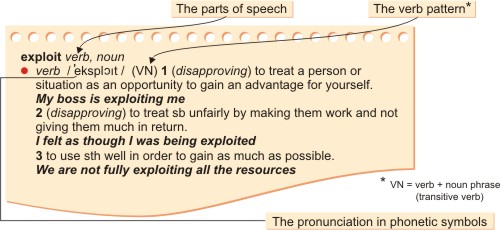Education

This
is the first in a series of articles produced by the British
Council. The aim is to help you, the reader, to practise and
improve your English, also for them to be entertaining and
for you to enjoy the activities! All the articles will try
and give you some tips and advice on better study techniques
and some useful language. Each article will have the answers
at the end, so you can do the exercises, then check your answers.
If you get the answers correct, well done! If not, don't worry,
have another look and try to see why .
Have fun!
One of
the skills we will be practising is being able to guess the
meaning of a word from its context. What do you do if you
don't understand every word in a paragraph you are reading?
You can either ignore the word (not always a bad idea!), check
the word in a dictionary (this can take time) or you can try
to guess the approximate meaning.
Read the paragraph below to follow the third strategy.
The
words around the unknown word can often help you to guess
its meaning. You can cover the unknown word with your thumb,
re-read the sentence and try to imagine what word, or phrase,
would best fit into the space.
For
example:Not even the most manager could have found the
words…
From
the sentence we can guess that eloquent must mean something
about a person's ability to use words. You might want to substitute
the word with another, such as intelligent. But with
the phrase '…could have found the words...'
you can see that the word must have something to do with a
person's ability to use appropriate words.
Now look
at the word setback. Firstly, is it a positive or negative
word?
Use the
strategies discussed and choose a simpler alternative word
from:
a) advantage
b) advancement c) disappointment d) adventure
The answer is C.
Now
try to guess the meaning of the words in bold in below. Use
the strategies mentioned, then use a dictionary to check.
You might want to use a thesaurus to see if your ideas were
correct.
A) When Graham Bell invented
the telephone in 1876, it was a revolution
in communication. For the first time, people could talk to
each other over great distances almost as clearly as if they
were in the same room. Bell's famous first words, to his assistant
Thomas A. Watson, "Mr. Watson…come here…I
want to see you", started a revolution that is still
on-going, it's latest stage is the mobile phone.
B)
The mobile phone began in the 1940's, a caller needed to be
within range of a radio mast (scientists called them 'cells',
which is why in many countries mobile phones are called 'cell
phones'), but these mobile phones were enormous
boxes that needed to be transported by car. Dr Martin Cooper
made the first mobile phone handset in 1973, his first call
was to a rival scientist to announce his success. By the 1980's
the mobile phone was available to the public, but it wasn't
until the mid-90's that the mobile phone became so popular.
A combination of small, cheap handsets and cheaper calling
rates meant that it seemed that everyone had a mobile phone.
While
most people have access to, and often use dictionaries, not
many people exploit the dictionary as much as they could.
Look at the extract below, taken from a monolingual learner's
dictionary.

You can find
the different meanings of the word, the verb patterns it follows
and how to pronounce it. It also gives you examples of how
the word is used in a sentence. A dictionary is much more
than a resource for checking spelling.
There
are many online dictionaries including http://dictionary.cambridge.org/
In
these articles we will also cover new vocabulary. Groups of
words are best learnt and remembered if there is a common
theme. Below is a crossword, use the clues to help you guess
the words. The theme is football.
Copyright
(R) thedailystar.net 2004
|
